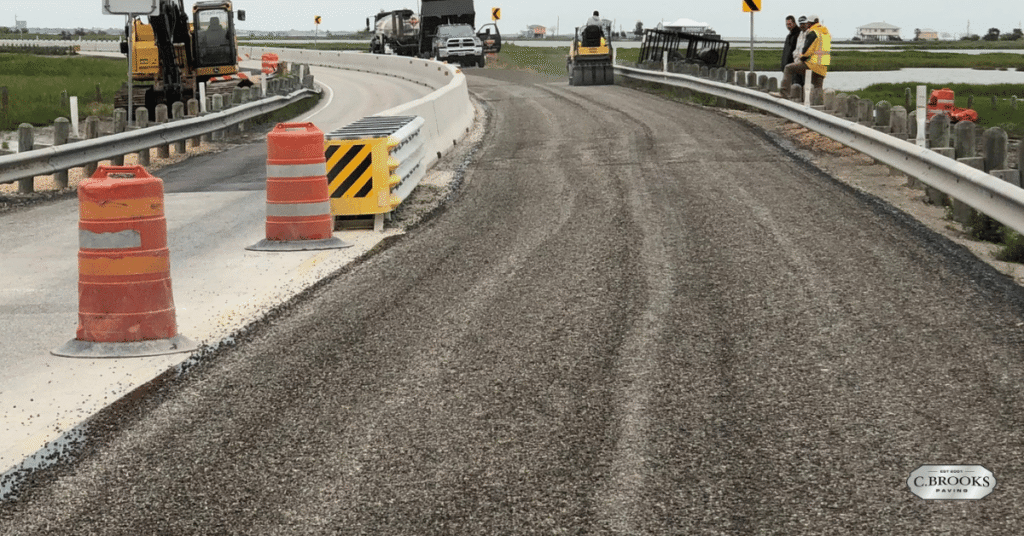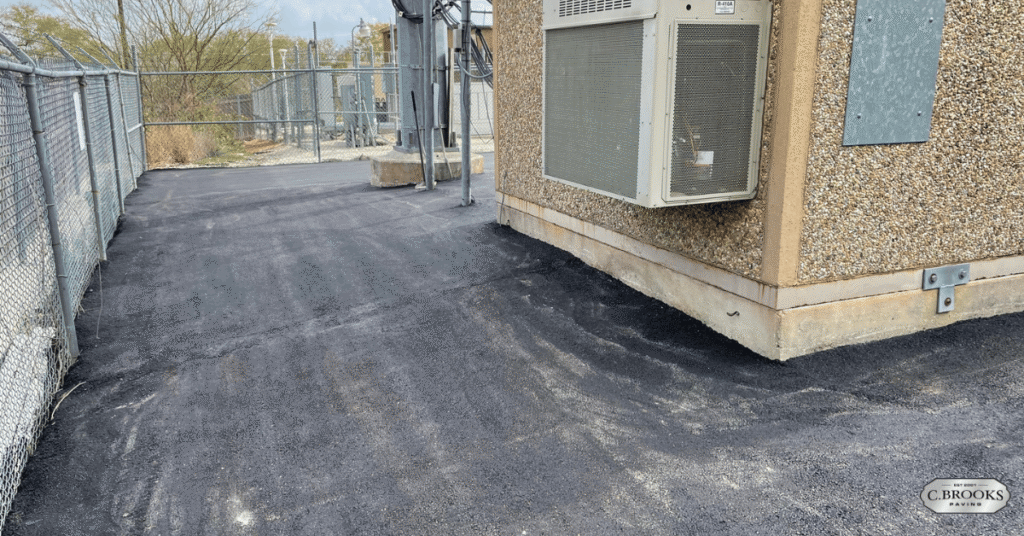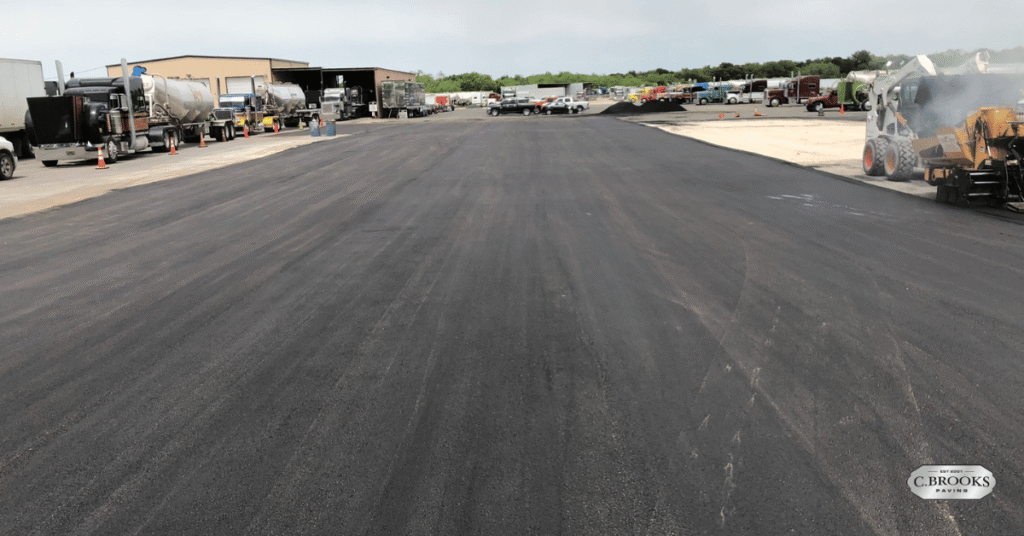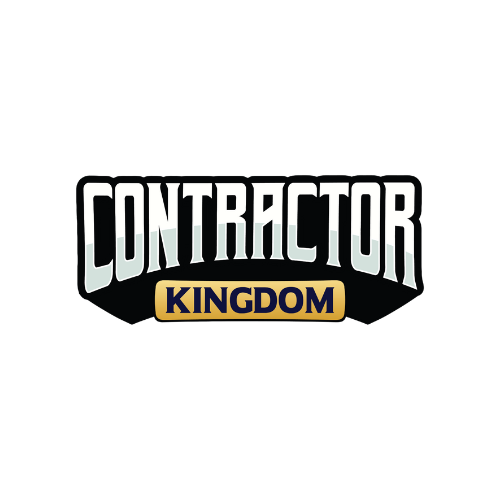Concrete flatwork plays a critical role in construction today. This guide to concrete flatwork explains what flatwork involves, the benefits of concrete flatwork, common uses in home improvement and industrial settings, and why professional installation ensures quality concrete surfaces. If you are a homeowner, business owner, or contractor planning your next concrete flatwork project, this article will show why flatwork can withstand the test of time and provide cost-effective, long-lasting value.
What Is Concrete Flatwork and Why Is It Important?
Concrete flatwork refers to any horizontal plane concrete work where a concrete slab is poured and finished in a flat surface. Flatwork construction typically includes driveways, sidewalks, patios, parking lots, and commercial spaces such as warehouse concrete floors or loading docks.
Flatwork construction is reinforced with rebar or welded wire mesh to create a sturdy foundation capable of handling heavy loads. A poured concrete slab can be finished in plain concrete or designed as decorative concrete with colors, stamping, or stain for aesthetic appeal.
Flatwork refers not just to functionality but also to visual appeal and curb appeal, making it one of the most versatile options in construction projects today.
What Are the Common Uses of Concrete Flatwork?
The common uses of concrete flatwork span both residential and industrial settings.
- Driveway projects – Concrete driveways offer a durable concrete surface that handles vehicles and provides curb appeal.
- Sidewalks and walkways – Safe and smooth walkways withstand constant foot traffic.
- Patios and porches – Concrete patios bring versatility and design options for homeowners.
- Parking lots – Durable concrete parking lots can withstand heavy loads in commercial spaces.
- Dumpster pads and curbs – Concrete also supports industrial and commercial applications like dumpster pads and curbs.
Flatwork offers cost-effective solutions and long-term durability of concrete for both homeowners and businesses.

What Are the Benefits of Concrete Flatwork?
The benefits of concrete flatwork make it a smart choice for construction projects.
Durability and Longevity
Concrete is one of the most durable building materials. Flatwork can last decades when proper maintenance and curing are followed. The durability of concrete allows it to withstand heavy loads, constant foot traffic, and Texas weather.
Low Maintenance and Cost-Effective Investment
Concrete flatwork requires minimal maintenance. Occasional cleaning, sealing, or minor repair protects the concrete surface from stains and cracks. Although the cost of concrete per square foot is higher initially, the advantage of concrete lies in its long lifespan and low maintenance.
Visual Appeal and Property Value
Flatwork offers curb appeal and design options. Decorative concrete with finishing concrete techniques like stamping or staining enhances both aesthetic appeal and resale value. Well-installed flatwork can turn concrete into a branding tool in commercial spaces.
These benefits of concrete flatwork show why many homeowners and contractors consider concrete flatwork the preferred solution.
How Does the Construction Process Work?
The construction process of concrete flatwork installation requires skilled construction practices. Each stage is essential for quality concrete results.
- Site preparation – Soil is graded and compacted to create a sturdy foundation and level base.
- Forming – Forms are set to shape the flat surface.
- Reinforcement – Rebar or welded wire mesh is added to increase strength.
- Mixing and pouring concrete – Concrete is mixed properly, ensuring the right aggregate balance, then contractors pour the concrete evenly.
- Finishing concrete – Surfaces are leveled and designed for smoothness, plain concrete, or decorative concrete finishes.
- Curing – Concrete needs adequate time to cure, gaining strength and longevity.
This step-by-step process is why hiring an experienced concrete company is recommended when installing concrete flatwork.
How Does Decorative Concrete Enhance Flatwork?
Flat concrete surfaces can be plain concrete, but decorative concrete allows versatility of concrete for both homes and industrial and commercial properties. Stains, colors, and stamping create aesthetic appeal that enhances curb appeal and visual appeal.
Using concrete with design options can elevate patios, walkways, and driveways. For industrial settings, decorative concrete may even serve as part of branding or design consistency for commercial spaces.

What Is the Durability of Concrete in Industrial Settings?
Concrete is one of the only materials that flatwork can withstand under the pressures of industrial settings. Loading docks, warehouse concrete floors, and parking lots rely on durable concrete that handles heavy loads daily.
Flatwork offers strength that flatwork construction today depends on. Minimal maintenance needs and proper maintenance practices mean industrial and commercial sites save on long-term repair and re-installation costs.
How Long Can Flatwork Last With Proper Maintenance?
Flatwork can last decades when concrete needs are met through curing and ongoing care. Proper maintenance includes:
- Cleaning surfaces to prevent stain buildup.
- Repair of small cracks before they expand.
- Sealing to protect from moisture and wear.
- Drainage management to prevent water pooling around walkways, patios, and driveways.
With minimal maintenance, flatwork construction can withstand daily use and extend longevity.
How Do Concrete Driveways Compare to Asphalt?
Concrete driveways differ from asphalt driveways in cost and performance.
- Concrete flatwork – Offers durability of concrete, long lifespan, and visual appeal with decorative options. Higher cost of concrete per square foot but lower repair needs.
- Asphalt – Easier to repair and lower upfront costs, but requires more frequent maintenance and has shorter longevity.
Choosing between concrete driveways and asphalt depends on the homeowner’s priorities for durability, curb appeal, and cost-effectiveness.
Why Should You Hire a Concrete Company?
Concrete flatwork requires professional skills. A concrete company ensures correct installation, from site preparation to finishing concrete. Experienced contractors follow best construction practices to deliver quality concrete that flatwork can withstand in both residential and industrial settings.
Flatwork construction is not just about pouring a piece of concrete it requires understanding concrete is mixed properly, installing concrete forms, reinforcement, and ensuring a sturdy foundation. A professional team provides reliable results for the next concrete flatwork project.
What Role Does Concrete Play in Sustainable Building?
Concrete flatwork also plays a role in sustainable building. Concrete is one of the most widely available materials and supports construction practices that focus on longevity and minimal maintenance. Flatwork construction contributes to construction today by reducing long-term replacement costs and maintaining a sturdy foundation for decades.
Versatility of concrete allows it to be adapted across types of concrete projects, from home improvement patios to industrial and commercial spaces.

Conclusion – Why Choose Concrete Flatwork?
Concrete flatwork involves creating flat concrete surfaces such as sidewalks, patios, driveways, parking lots, curbs, and concrete floors. Flatwork construction offers durability of concrete, versatility of concrete, and visual appeal. Flatwork can withstand heavy loads, provides cost-effective long-term performance, and offers design options for both homeowners and industrial settings.
Whether you are installing concrete for home improvement or managing industrial settings, consider concrete flatwork as your solution. Flatwork can last decades, requires minimal maintenance, and provides curb appeal and value that few materials match.





